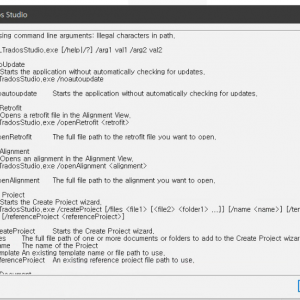
완료 시제
12a 제8장에 이어 다시 완료 시제에 대해 살펴보겠습니다. 완료 시제는 완료형 어간 + 어미(-i, -isti, -it, -imus, -istis, -erunt)로 구성됩니다.
이미 8d에서 본 바와 같이 완료형 어간 형성에 대한 규칙이 없다는 것이 문제입니다만 익혀 두는 수밖에 없습니다. 거기서 다루었던 완료형 어간은 대부분 제3, 5형 활용 동사의 어간이었습니다. 이에 반해 제1, 2, 4형 활용 동사의 완료형 어간은 대부분 규칙적이라서 다행히 라틴어의 규칙성에 대한 신뢰를 회복하게 되었다고 할까요?(혹시 잃어버렸다면..). 기억해 둘 것은 -vi 및 -ui 두 가지뿐입니다.
제1형 활용 동사
12b am-o 1v am-are ama-v-i ‘I have loved/loved/did love’. 이와 같이 제1형 활용 동사의 완료형은 모두 어간 + 핵심 모음 -a- + v-i, v-isti, v-it, v-imus, v-istis, v-erunt로 구성됩니다. (8b-c 참조). 활용예: equit-o 1v equit-are equita-v-i ‘I rode’, pugn-o 1v pugn-are pugna-v-i ‘I fought’, port-o 1v port-are porta-v-i ‘I carried’등.
예외 두 가지: d-o d-are ded-i ‘I gave’ 그리고 st-o st-are stet-i ‘I stood’.
연습 문제
- 영어로 번역하시오. dedisti, portaverunt, festinavit, portabas, nuntiavi, ministraverunt, dabat, stetimus, stabat mater dolorosa (lamenting), amavistis, pugnavi, pugnabamus.
- 라틴어로 번역하시오. I stood, we fought, they rode, she carried, they gave, he loved.
해답
- You gave, they carried, he hurried, you were carrying, I announced, they served, he was giving, we stood, mother was standing lamenting, you loved, I fought, we were fighting.
- steti, pugnavimus, equitaverunt, portavit, dederunt, amavit.
제2형 활용 동사
12c mon-eo 2v mon-ere mon-u-i ‘I warned’, 즉 어간 + u-i, u-isti, u-it, u-imus, u-istis, u-erunt. 약간 특이한 점은 -e-가 빠진 자리에 -u-가 들어온 것이지만 규칙성은 잃지 않고 있습니다.
활용예: hab-eo 2v hab-ere hab-u-i ‘I had’, ten-eo 2v ten-ere ten-u-i ‘I held’. 기억을 되살리면 예외적으로 다음과 같은 비규칙적인 동사의 활용을 학습한 바가 있습니다. vid-eo 2v vid-ere vid-i ‘I saw’, iub-eo 2v iub-ere iuss-i ‘I ordered’ respondeo 2v respondere respond-i ‘I replied’.
연습 문제
- 다음을 영어로 번역하시오. monuit, iussimus, habuimus, iubebant, tenuerunt, respondit, monebatis, viderunt, habui, monuimus, monebamus, monemus.
- 다음을 라틴어로 번역하시오. They warned, you (s) ordered, he had, they terrified (terreo terrere terr-ui), we replied, we are replying, he held, I saw.
해답
- He warned, we ordered, we had, they were ordering, they took, he replied, you were warning, they saw, I had, we warned, we were warning, we warn.
- monuerunt, iussisti, habuit, terruerunt, respondimus, respondemus, tenuit, vidi.
제4형 활용 동사
12d aud-io 4v aud-ire aud-i-v-i ‘I heard’. 기억해 두십시오. 어간 + 핵심 모음 -i- + v-i, v-isti v-it, v-imus, v-istis, v-erunt
되풀이되니 지겨운가요? 지겨운 까닭은 라틴어가 규칙적인 언어이기 때문입니다. 지겨운 점에 대해서 감사합시다.
사용례: sc-io 4v sc-ire sc-i-vi ‘I knew’, nesc-io 4v nescire nesc-i-vi ‘I did not know’ 등.
예외적으로 다음과 같은 비규칙적인 동사의 활용을 학습한 바가 있습니다. sent-io 4v sent-ire sens-i ‘I felt’ 그리고 ven-io 4v ven-ire ven-i ‘I came’.
연습 문제
- 다음을 영어로 번역하시오. audivisti, nescivit, sciverunt, venit, sensi, nescivistis, sciebam, audiverunt, nescivi, sentiebat.
- You (s) knew, we did not know, they felt, he guarded (custodio custodire custodivi), they came, she heard.
해답
- You heard, he did not know, they knew, he came, I felt, you did not know, I was knowing, they heard, I did not know, he was feeling.
- scivisti, nescivimus, senserunt, custodivit, venerunt, audivit.
분사
12e 다음을 살펴보십시오.
Iesus respondit, dicens: Jesus replied, saying.
discipuli responderunt, dicentes: the disciples replied, saying.
homo venit, vinum portans: the man came, carrying wine.
homines veniebant, vinum portantes: the men were coming, carrying wine.
영어에서 분사는 어미가 ‘ing’인 동사입니다(정확한 표현은 아니나 일단 이렇게 정의합니다).
라틴어에서 분사의 어미는 단수일 때 -ns(주격), -ntem(대격), 복수일 때 -ntes(주격 및 대격 공통)입니다.
12f 제1-5형 활용 동사의 분사를 어떻게 만들까요? 현재 시제 어간 + 핵심 모음 + -ns(단수 주격) 또는 -ntes(복수 주격)입니다.
활용예. amans, amantes ‘loving’: monens, monentes ‘warning’: regens, regentes ‘ruling’: audiens, audientes ‘hearing’: capiens, capientes ‘capturing’.
amans의 뜻은 loving 뿐만 아니라 a person loving/a person who loves/a lover도 됩니다. (이처럼 분사 및 명사의 철자가 동일한 단어가 다수 있음)
연습 문제
다음을 영어로 번역하시오. Omnis (everyone, 주격) amantem amat; Iesus respondens ei dixit; milites, clamantes (clamo 1v ‘shout’) et festinantes, ad palatium ibant; vidi hominem ex aqua equitantem; servum interrogantes, milites nullam causam in eo inveniebant (12g 어휘 참조)
해답
Everyone loves a lover; Jesus, replying, said to him; the soldiers, shouting and hurrying, were going to the palace; I saw the fellow riding out of the water; questioning the slave, the soldiers found no fault in him.

요한 복음 19장 4-6절
어휘: ergo so therefore; iterum again; foras outside; ecce behold; adduco lead/bring out; invenio (4) find; nullam . . . causam no fault; clamo (1) shout; crucifigo (3) crucify; accipio (5) take, receive; enim (영어 번역문 첫머리에 오는 단어) for.
다음을 영어로 번역하시오 exivit ergo iterum Pilatus foras, et dicit eis: ecce adduco eum (=Jesus) vobis foras, ut (that) cognoscatis (cognosco의 접속법 현재 2pl you may know) quia (that) nullam invenio in eo causam. exivit ergo Iesus portans coronam (crown) spineam (thorny) et purpureum vestimentum. et (Pilatus) dicit eis: ecce homo. clamabant dicentes, crucifige, crucifige eum. dicit eis Pilatus: accipite eum vos, et crucifigite; ego enim non invenio in eo causam.
해답
So Pilate therefore came out again and says to them: behold, I bring him outside to you, so that you may know that I find no fault in him. Jesus therefore came out wearing a crown of thorns and a purple robe and (Pilate) says to them: behold, the fellow. They shouted, saying Crucify, crucify him. Pilate says to them: you take him and crucify (him): for I do not find fault in him.
여러분 수고하셨습니다.








